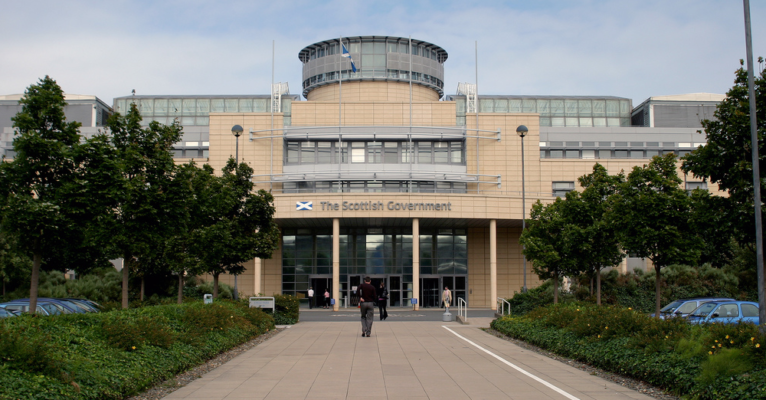Scotland and Europe: The Scottish Government’s goals for post-Brexit environmental governance

Setting out a clear vision of what is being sought as the UK leaves the European Union has proved to be a challenge for many of those involved in the Brexit process. That the Scottish Government has a sharper view, centred on ambitions different from those held by the UK Government, has been obvious since the publication in December 2016 of Scotland’s Place in Europe.
The Scottish Government’s preferences were clearly set out in that document: continued membership of the Single Market and Customs Union and a differentiated position for Scotland to retain close links with the EU, whatever is decided for the UK as a whole.
More specific environmental priorities have now been set out in Developing an Environmental Strategy for Scotland: Discussion Paper, where alongside a draft vision for Scotland’s environment and climate change policies, space is devoted to what is being sought on environmental issues as Brexit proceeds.
The Scottish Government’s key priorities in the EU-UK negotiations are:
1. Safeguarding and expanding Scotland’s devolved powers.
This includes ensuring that Scotland’s devolved powers are maintained or expanded as control returns from Brussels and that any UK common frameworks are negotiated and agreed with devolved administrations and not imposed upon them.
2. Maintaining or exceeding EU environmental standards.
There is a commitment to maintain or exceed EU environmental standards and carry forward EU environmental principles and to ensure effective monitoring and enforcement. These issues will be developed in the consultation on environmental principles and governance required later in the year by the UK Withdrawal from the European Union (Legal Continuity) (Scotland) Bill.
3. Ensuring future trading arrangements do not compromise existing standards.
If the preference for remaining within the European Single Market and Customs Union cannot be met, there should be no weakening of standards as a condition of future trade agreements.
4. Maintaining funding for environmental outcomes at least at current EU levels.
Funding for environmental outcomes, which plays an important part in many aspects of sustainable management and investment, should be at least maintained at current levels.
5. Protecting the rights of EU citizens and their contribution to Scotland’s environment sector.
The contribution of EU nationals in highly-skilled posts in areas such as hydroecology, environmental engineering, radioactive waste processing and low-carbon technologies is noted and immigration arrangements are sought that will allow Scotland to recruit the best talent and meet its workforce needs.
6. Collaborating and demonstrating leadership on the international stage.
Co-operation at the European and international levels is essential for Scotland’s ambitions as a leader on climate change and the circular economy and there should be continued membership of all current multilateral environmental agreements and participation in EU collective action and wider international negotiations.
7. Participating in EU initiatives which are of mutual benefit.
The UK should continue to participate in a range of EU initiatives where there will be mutual benefit, including EU energy and carbon markets; the regulation of chemicals and radioactive waste via REACH and EURATOM; data systems to prevent illegal, unregulated and unreported fishing; and the sharing of environmental data and scientific expertise.
There is nothing surprising in this list, which is largely an elaboration on the Scottish Government’s policy of maintaining close links with the EU and asserting Scotland’s view of the devolution settlement. Elements of this are in effect a restatement of the positions which have led to such bitter constitutional disagreement during the passage of the EU (Withdrawal) Act 2018 and to the continuing absence of agreement over common frameworks and any shared mechanisms for environmental oversight and enforcement.
Other elements reflect a working through in the environmental context of the desire to retain alignment with the EU and its environmental structures, a policy at odds with the UK Government’s approach on at least some matters.
The danger is that the focus on the structural matters that are central to the Brexit negotiations diverts attention from the substantive questions over what might best serve environmental needs. The proposed Environment Strategy for Scotland is not just about the next couple of years, and there is an opportunity to think on a broader canvas.
The Discussion Paper proposes a vision for “one planet prosperity”: “This means protecting nature and living within the Earth’s sustainable limits, while building a more prosperous, innovative and successful nation.” Will sticking closely to EU policies, frameworks and standards deliver that vision? On the one hand, close alignment with the EU may provide protection against deregulatory pressures to lower environmental standards, but on the other it may hinder the development of more ambitious approaches to environmental enhancement. Maintaining EU standards may be a short-term goal to avoid the risk of damaging back-sliding, but will not by itself guarantee a truly sustainable future.
Although the Brexit issues may at times seem all-consuming, we must not lose sight of the wider and longer-term picture, as the Discussion Paper emphasises. There will come a time when Brexit is behind us!
Image courtesy of the Scottish Government.
Prof Colin T Reid is Professor of Environmental Law at the University of Dundee.




